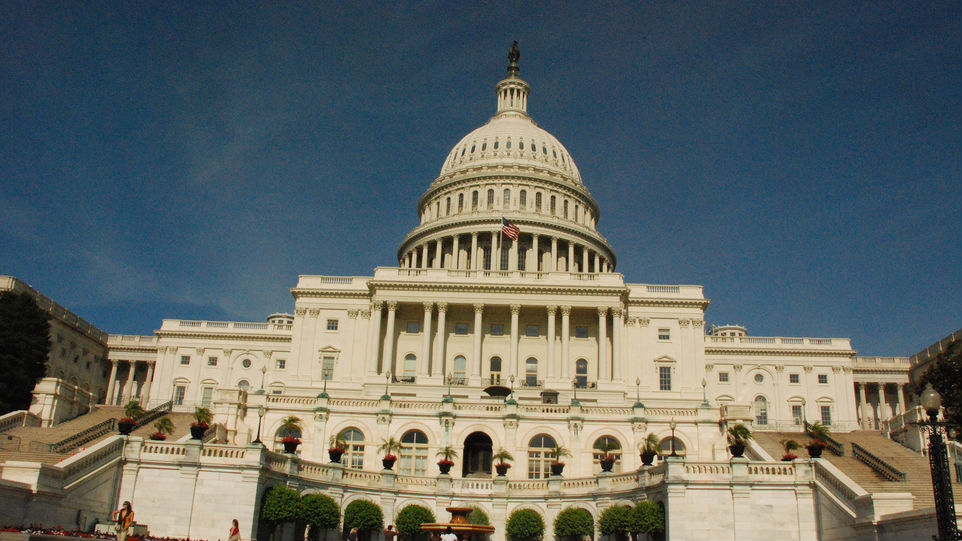Technology & Innovation
All Stories
For most people, social networking consists of status updates, virtual cows, and bizarre Kanye tweets. But actor and philanthropist Edward Norton believes that social networking can truly change the world, […]
The same mechanisms that govern Crowdrise’s micro-fundraising will also “certainly” transform the way government interacts with the American people, NYU professor Jay Rosen told Big Think. Harnessing social networks for […]
By allowing users to create and polish their personal brand, Facebook has become the magic mirror of our narcissistic and self-publicising era, says Philippe Rivière.
Whether Goldman Sachs’ $450 million investment in Facebook will create another technology bubble depends on how and when emerging tech companies go public.
Recent decades have seen a massive redistribution of wealth, imposing the cost of successive crises on the poorest. Enough already, says Amherst economics professor Richard Wolff.
Whether running for president of the United States or for city council, politicians can count on seeing their words broken into ever smaller and more fragmentary bits.
The United States will start to imitate the industrial and strategic trade policies of countries like China, Japan, Korea, Germany, and France. It will also begin to withdraw its overseas troops.
Government health and retirement programs are on paths that will slowly but inexorably bankrupt us. It is not too late to solve the problem.
As we live longer and fewer of us are needed to provide the essentials of life, how can our society provide a sense of purpose to people’s lives through work?
From the moment they entered the workforce in the 1960s, baby-boomers began to shape America’s economy and politics. They will do the same as they leave.
A lack of ambition plagues virtually every Western country. The ability to act has become shackled by a profound pessimism that does not exist in developing countries.
The only thing worse than being misperceived by a machine is being expertly perceived by one, says Walter Kirn about software that recommends the author books and movies.
Erika Morphy tells retailers how now to be evil when selling and suggests other resolutions for navigating a tricky economy and cautious consumers.
The American people rescued these six banks. They’ve all violated the law, and they’re all suspected of even more possible illegalities.
Once a company has 500 shareholders, it must register its private shares with the S.E.C. and publicly disclose its financial results. Is Facebook approaching the limit?
Can the leak phenonomen WikiLeaks sustain the continued assault by the corporate sector to prevail in the first ever cyber-war? Mark LeVine says capital will likely win out.
Niko Bell says that finding a man is not as easy for Chinese women as we might think.
Pre-industrial societies with polygyny as the dominant marriage institution consume less alcohol than those with monogamy.
The Economist has invited four career economists to predict what changes will take place in the global economy during the following year. Deficit reduction is one possibility.
The World Wide Web turned 20 this month. To mark the occasion, its creator and protector, Tim Berners-Lee (who invented it so that particle physicists from CERN—the current home of […]
In the next five years, the American Society of Civil Engineers estimates that the United States will have to spend more than one trillion dollars simply to sustain what we already have.
How can the government regulate the neutrality of the Internet? Isn’t that a contradiction in terms? Stephan Kinsella says government regulation of the Internet will stifle business.
A new law overhauls the way the federal government supports private-sector R&D, and one of the main ways the government hopes to support R&D is with prizes. Lots of prizes.
Extending unemployment benefits and the Bush tax cuts are a good first step to rewriting America’s tax code, says Nobel Laureate Gary Becker, who favors a flat consumption tax.
Why have new jobs been so hard to come by? One view blames cyclical economic factors but another says there is a mismatch between the skills people have and the jobs available.
Why is it that people who argue against the government’s role in the economy don’t likewise advocate for the flip side: that corporations should not be allowed to influence government?
Should you invest or pay down debt? Should you help your siblings plan for their retirement? Should you pre-pay your mortgage? Trent Hamm answers these and related questions.
The Internet is prompting some people to get it in gear by competing against each other online. The rewards include virtual badges and group encouragement.
The FCC’s net neutrality rule is a weak compromise that will not stop industry control of content delivery at consumers’ expense, says Beth Wellington at The Guardian.
Is the computer really a better pencil? Will it lead to better writing? Just about every other new writing instrument has been seen as a threat to literacy and a corrupter of youth.







